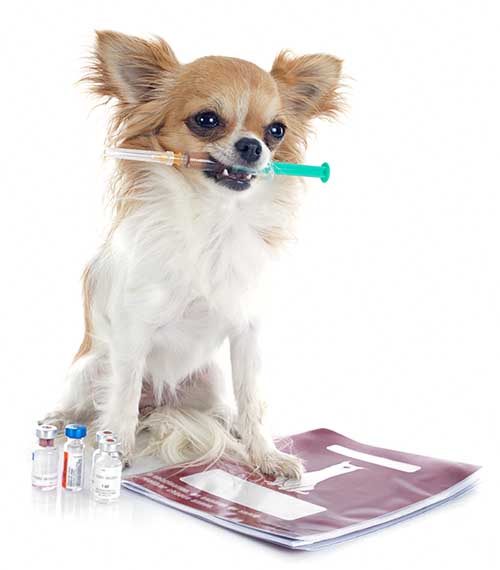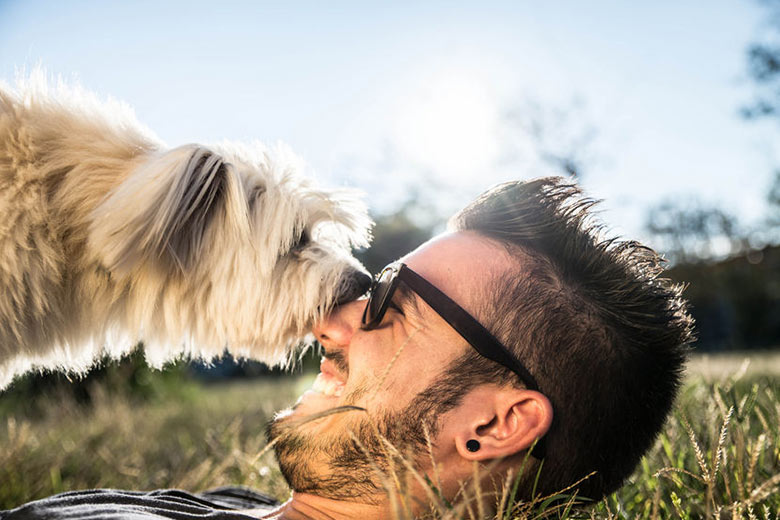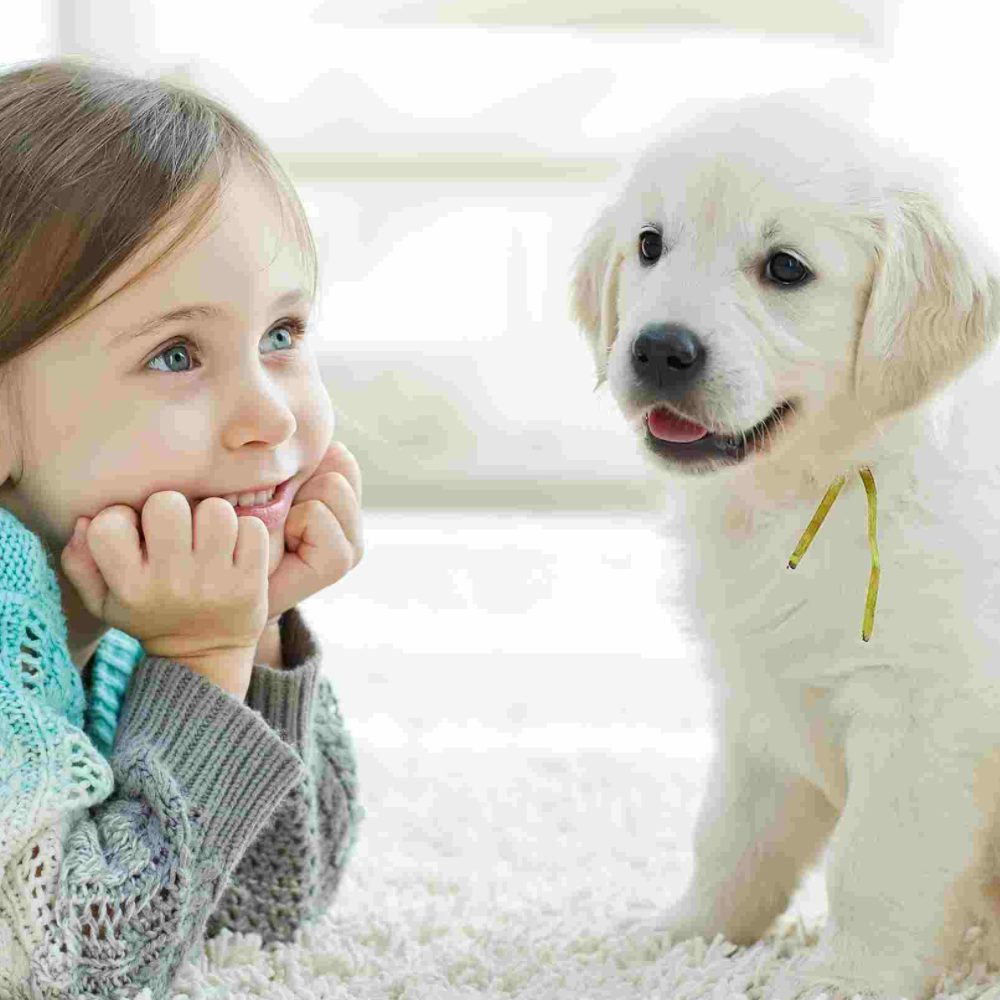Puppy buyer’s guide – Where to get a new puppy

Planning on getting a puppy? If you have already settled on a breed, the next big decision is where to get your puppy from (and if you haven’t, be sure to use our Breed Selector tool to find your best match).
A term that you often hear these days is ‘responsible dog ownership’. This usually relates to how you keep, care for and train your dog. But we think that being a responsible pet parent actually begins with deciding where to get your pet from.
Considering that your dog will be a member of your family for the next decade (or even up to 16 or 17 years), you want to make sure that you are getting your puppy from a reliable source that you can trust.
There are a number of options available and some of these are recommended more highly than others. This article aims to help guide you to make the best decision – for you and your future fur baby.
Broadly speaking, the most common options to find puppies for sale or adoption are:
- Breeders
- Rescue and animal welfare organisations
- Classified ads or online
- Pet shops
Professional breeders

The landscape of dog breeders in Australia is quite large and not very transparent. The regulations around breeding dogs and what is allowed, and what is not, are different in every state, and are somewhat limited. In other words, almost anyone who breeds dogs for sale can call themselves a ‘Professional Breeder’ and put up their puppies for sale.
 There are many breeder associations and animal welfare organisations, but being registered with an organisation, association, club or council doesn’t vouch for the the quality of the breeder or his or her practices.
There are many breeder associations and animal welfare organisations, but being registered with an organisation, association, club or council doesn’t vouch for the the quality of the breeder or his or her practices.
A responsible breeder will breed dogs as a source of income, but even more importantly, for the love of the breed. A responsible breeder will ensure that he or she finds the right puppy for you, and the right family for each puppy in the litter.
Responsible breeders will ensure that:
- they breed and whelp their puppies in an ethically correct way
- their puppies have a sound temperament
- they follow the breed standards
- their puppies are healthy and well socialised even before you take the puppy home.
Want to know what makes a responsible breeder? Click here to read more.
Puppy Farms
Puppy farms are also known as ‘Puppy Mills’ or ‘Puppy Factories’, and the latter is a very apt description. These are often large-scale businesses where puppies are bred for sale, usually under inhumane conditions. Females are used as breeding machines to pump out litter after litter, until they don’t produce anymore and in most cases will then be put down. Puppy farms often supply multiple breeds of puppies for sale and their distribution channels are usually via pet shops and classified ads.

Apart from the cruel way that dogs on puppy farms are treated, the puppies produced by these “farms” will often have a number of problematic issues. These issues may not be noticeable until later, and may include the following:
- Insufficient socialisation at a young age
What this means for you: Your puppy may be scared of a lot of things. This can include sounds, objects, smells, people … you name it. Quite often these puppies are shy or may behave in an ‘over the top’ way. They can also show signs of aggression. - Insufficient socialisation within the litter
What this means for you: Your puppy may be missing some social skills and its social behaviour amongst other dogs may not be adequately developed. - Behavioural issues
When a pregnant mother is under a lot of stress in the environment of a puppy farm, this can have a big effect on her pups before they are even born. This stress continues after they are born, with the mother struggling to raise her pups in trying conditions and unable to teach them what they need to learn.
What this means for you: Your puppy may show all sorts of behavioural issues at a very young age – from shyness to aggression, nervousness or hyperactivity.
- Health issues through breeding dogs with weak genes
What this means for you: The majority of puppies from puppy farms come with health problems, from genetic defects to skin conditions, allergies and kennel cough…the list is long.
In a nutshell: Puppy farms are not ethically justifiable in any way. And the puppies they breed often come with a range of behavioural and health issues.
Many animal welfare organisations are campaigning against puppy farming and trying to push the government to change the legislation in order to shut down and ban this practice. One of the most prominent and successful of these organisations is ‘Oscar’s Law’, which was named after Oscar, a dog that spent the first 5 years of his life as a stud dog in a puppy factory.

Like many others (including some of Australia’s top celebrities), please support Oscar’s Law in their tireless mission to end puppy farming in Australia.
Learn more about Oscars Law.

The RSPCA is also very engaged in closing down puppy farms.
To learn more about their initiatives, click here.
How to identify a puppy farm (not all points need to apply):
- They sell a large number of puppies or always have puppies available. They can quickly offer you an alternative puppy or litter if one they showed you is not suitable.
- They constantly advertise online or via classifieds. They sell their puppies through pet shops and sometimes even at flea markets or other public events.
- They usually have multiple breeds available, and often sell “rare” or “new” breeds.
- The seller wants to meet at a public place or brings the puppy to you. They do not want you to view the business/breeding facility. If they invite you to their home, it might be someone else’s home. Or they operate as an “agent”.
- You won’t be allowed to meet the breeding parents. They will not be able to show you the whelping box. Most of the time you will only meet one puppy without its littermates.
- If you are able to see the dam, you may see that there is no bond with the owner and the dog may not even recognise its name.
- The dam is often very young.
- The breeder/seller is not able to tell you much about the puppy, its temperament and personality, history and the parents.
- They won’t be able to give you any details about the puppy’s socialisation.
- No questions are asked of you other than arranging money and pickup.
Backyard Breeders
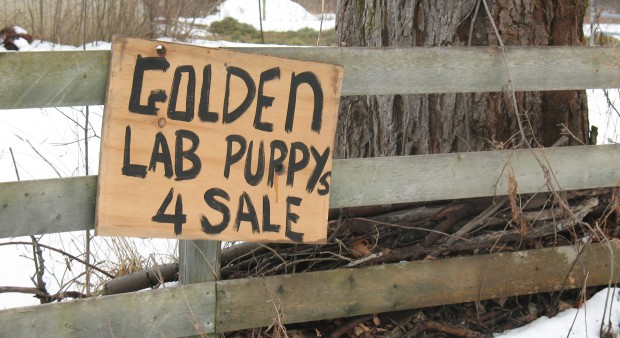
Source: http://www.belgianshepherdrescue.com.au
A backyard breeder is the term used to describe an amateur who breeds dogs, sometimes for profit or perhaps just as a one-off litter. They may have puppies for sale because their dog has mated with their friend’s dog, or because they think their dog(s) are great and should reproduce. Some may just want the experience of producing a litter of dogs and do it as a one-off exercise.
We have seen some lovely dogs coming from backyard breeders, but we have also seen the opposite. Backyard breeders often don’t have the right set up, know-how and experience to breed and whelp puppies adequately, however good their intentions may be. Backyard breeders are not registered, and are not usually in any clubs. They often sell their dogs via classified ads, the internet or via pet shops.
Recommendations for buying a puppy responsibly
1. Ask the experts – breed clubs, dog sport clubs, dog shows and events
Most breeds in Australia have one or more breed clubs, which you can easily find over the internet or in dog magazines. Organisations such as Master Breeders or Dogs Australia also have lists of breeders, however you will still need to determine yourself if this is a responsible breeder or not. If you decide to rescue a puppy of a specific breed, the breed clubs are the perfect place to ask.
If you are looking for a dog to perform in a specific dog sport (eg. agility), you may ask those clubs or go to such an event to find out more about recommended breeders.
Dog shows are also often a good way to get pointed in the right direction.
Some helpful contacts are:
-
- Master Dog Breeders & Associates
- Dogs Australia
- Specific breed clubs & organisations, e.g. The Mini Foxie Club of Australia, The German Shepherd Dog Council of Australia
- Dog Lovers Festival or other breed specific dog shows
- DogsNSW, Dogs Queensland, Dogs ACT, Dogs SA, Dogs Victoria, Dogs Tasmania, Dogs NT, Dogs West (WA)
2. Use a rescue organisation, the RSPCA or Animal Welfare
In some instances you may find puppies via RSPCA, Animal Welfare and especially rescue organisations that may have a litter or single puppies in foster care. These puppies are often well looked after, but you may not know a lot about their history before they came into care – and history can have a big impact on how your dog will turn out in terms of behaviour and health. However, nothing can beat the feeling of giving a young dog a second chance of living in a loving family.
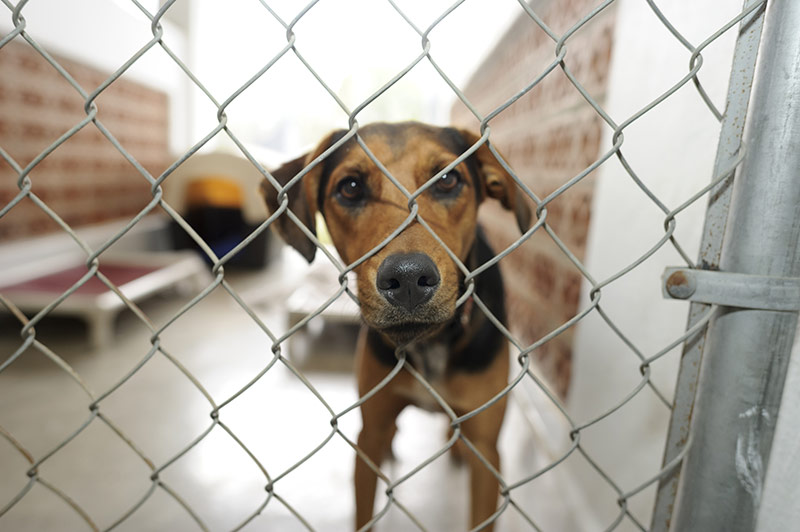
Even if a rescue organisation does not have a puppy that’s right for you, they will often be able to point you in the right direction as to where to get your puppy from. If you are looking for a rescue puppy of a specific breed, you may also ask breed clubs for contacts.
3. Ask vets, trainers or groomers
 Your local vet, dog trainers and groomers are often a good source for contacts that can point you in the right direction to either clubs and organisations, or rescuers and breeders directly.
Your local vet, dog trainers and groomers are often a good source for contacts that can point you in the right direction to either clubs and organisations, or rescuers and breeders directly.
Be aware that however experienced they are with animals, they still cannot vouch for the quality of the breeding, so it is up to you to ask the right questions to find out if a breeder is responsible or not.
4. Search via classified ads or online with caution
“I bought my puppy off the internet /newspaper /on Gumtree…” – we hear statements like this so often. Be awarea that you are unlikely to find reputable breeders advertising this way. Most of the time, classified ads are placed by puppy farms or backyard breeders.
Classified ads on websites such as Gumtree are becoming a more popular way of selling puppies by private sellers. In these cases, someone who bought a puppy wants to rehome the animal and is looking to sell it via classified ads. Those puppies are often much cheaper than buying them from the breeder. However, there are a few things to be aware of:
- You often don’t know the history of the puppy, whether it is from a responsible breeder or not.
- You won’t have any professional advice or judgment to help decide if this puppy is the right choice for you.
- If you decide on a puppy from a private seller, don’t forget a sales contract that signs over the ownership of the puppy. You will also need to change the microchip details.
Also, be aware that there have been numerous puppy scams perpetrated via online platforms and classified ads that have left unsuspecting pet purchasers out of pocket by hundreds or even thousands of dollars.
5. Proceed cautiously with a pet shop
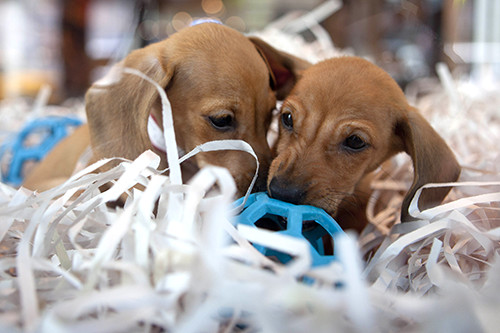
Source : https://www.haikudeck.com/puppy-mills-education-presentation
There are pet shops that are are ethical, however, there are also those that aren’t. If you decide to buy a puppy from a pet shop there are many factors to consider.
- Pet shops are convenient and are designed to appeal to the impulse buyer, but the urge to buy a cute puppy on impulse can override the common sense aspects of finding a puppy that is a good fit for you and your lifestyle.
- Don’t be rushed – you often have a 7 day cooling off period in which you can return the puppy (we think this is too short however, when you consider that the ‘honeymoon period’ with a new pet is usually around 2-4 weeks). So you want to make sure you take time making your decision and if a shop puts pressure on you (“we can’t hold the pet for you”), we suggest you look elsewhere.
We can be led to believe that the puppies that pet shops sell are from trusted sources, but you may be surprised at some of their origins. Unfortunately, there are still pet shops that are involved in selling puppies from puppy farms or backyard breeders.
Ask the pet shop to put you in touch with the breeder who supplied their puppies. Do your due diligence and make sure the breeder is responsible by asking the following questions:
- Will the pet shop be able to arrange an interview with you and the breeder?
- How will the breeder and the pet shop help you to find the puppy with the right temperament for you? Do they know the temperament of each of the puppies and how it will the fit into your life and family situation?
- How many litters and breeds does the breeder breed a year?
- Ask them to explain in detail how the puppy has been socialised and what the breeder has done to expose the puppy to different environments, people, sounds etc.
- Ask to see the puppy’s pedigree (family tree) and get them to explain their parents and their ancestors traits.
- They should be able to show you the documentation of the puppy’s parents health test.
- You should be able to meet the parents and have a look at the breeding/ whelping facilities.
If the shop is not willing or not able to disclose this information with you, you should be careful and aware that there may be a reason for it.
For more about how to identify a responsible breeder, see here.
Pet shops are gradually changing and there are a number of pet shops that actually re-home puppies. But even in this case, please make sure you research where the puppy is from. The pet shop should be able to let you know which rescue organisation or shelter the puppies are from and should be able to share their contact details with you for you to follow up with them. The rescue organisation should be able to give you more detailed information about the puppy such as:
- Where the puppy is from or where it was found.
- Any details of history that is known (litter size, parents history, etc.).
- Any behavioural assessments that have been done and their results.
- How long the puppy has been in the shop and has it been anywhere else between the pet shop and the shelter/pound?
- Any health issues the puppy may have had at the time of rescue/ surrender and medical treatments.
- They should be able to answer any further questions you have about the puppy.
In summary…
There are a number of options for sourcing a puppy, and we recommend that you always take the time to ask the right questions and do your due diligence (for your sake and the puppy’s sake). If you purchase your dog from a breeder, you should make sure that you get it from a responsible breeder. This is your best bet to find a well-socialized, healthy puppy without genetic defects and with a sound temperament.
And remember, if at any stage any stage before or even after the purchase you don’t feel comfortable with a breeder or pet shop, you should never be afraid to cancel the purchase or adoption.



